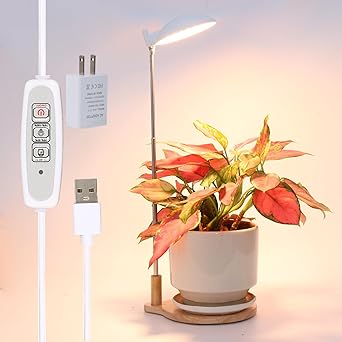If you’re an avid indoor gardener or simply love having lush, thriving plants in your home, a small grow light might be a valuable addition to your plant care arsenal. These compact, energy-efficient lights can provide your plants with the full-spectrum light they need to flourish, even in low-light conditions. However, before making a purchase, it’s essential to weigh the pros and cons of a small grow light to determine if it’s the right choice for you and your plants.

Pros of a Small Grow Light for Indoor Plants
Full-spectrum lighting: Small grow lights for indoor plants often emit full-spectrum light, which covers a wide range of wavelengths from 380nm to 780nm. This mimics natural sunlight and provides plants with the necessary light for photosynthesis and healthy growth.
Energy-efficient and environmentally friendly: LED grow lights are more energy-efficient than traditional incandescent lamps, making them a cost-effective and eco-friendly choice for indoor plant cultivation.
Adjustable brightness and timer functions: Many small grow lights offer adjustable brightness levels and built-in timers, allowing you to customize the lighting conditions for your plants’ specific needs and preferences.
Compact and versatile design: These lights are designed to be compact and lightweight, making them suitable for placement in various scenarios, such as on countertops, desks, or under kitchen cabinets.
Cons of a Small Grow Light for Indoor Plants
Limited coverage area: While small grow lights can provide sufficient light for individual plants or small groups, they may not be suitable for larger indoor gardens or spaces with multiple plants that require extensive lighting.
Potential heat buildup: Depending on the design and placement of the grow light, there is a possibility of heat buildup, which could potentially harm sensitive plants if not properly managed.
Initial investment: While small grow lights are generally affordable, the initial investment may be a consideration for some gardeners, especially if they are on a tight budget or have limited space for their plants.